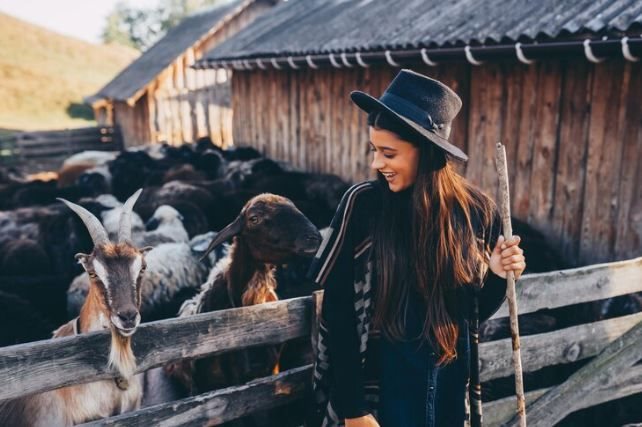
Related
Top stories




Marketing & MediaWarner Bros. was “nice to have” but not at any price, says Netflix
Karabo Ledwaba 1 day


More news

Logistics & Transport
Maersk reroutes sailings around Africa amid Red Sea constraints

















In a constant effort to increase revenue streams and diversify their operations, farmers are constantly looking at new opportunities. Adding a new revenue stream such as an agritourism venture to a farming operation can improve a farmer’s financial stability in an increasingly uncertain agribusiness environment.
Climate change is making farming increasingly complex, as is a growing body of international laws and regulations governing the export of farm produce. Apart from allowing farmers to move away from the obvious risks in monoculture – soil degradation, pest infestations, biodiversity loss, and more – agritourism can help them broaden their revenue streams and improve their financial stability.
By expanding their core business to include agritourism, farmers can put more money in their bank accounts and create new agritourism roles. This will increase job opportunities, which are sorely needed in South Africa - plagued as it is by high unemployment.
The global farm-based tourism market is growing quickly. It was valued at $5.95bn in 2021 and is expected to develop at a compound annual growth rate of 11.4% from 2022 to 2030, according to the International Market Analysis Research and Consulting Group.
Agritourism offers a world of opportunity in a growth market and getting started does not always require a huge capital outlay.
It takes advantage of a shift in global attitudes towards tourism. Tourists’ preferences were already changing when the Covid-19 pandemic all but shut down tourism for at least a year. People were looking for depth of experience over the surface-level encounters that conventional tourism so often offers. The pandemic consolidated this trend.

Travellers are now more interested in connecting with local cultures and exploring off-the-beaten-track destinations. They also want to make sure their environmental impact is reduced.
The rewards of branching out into new money-making activities, such as those to be gained from agritourism, can be big. Agritourism can also benefit farmers’ local communities. In rural South Africa, economic progress and the ability to foster an environment where safety, security and progress blossom is 100% dependent on a vibrant and successful agricultural sector. The ability of hospitality and tourism to create jobs and growth is a given.
By combining agriculture and tourism, local communities enjoy a capital injection through the growth of agritourism. Apart from its potential to improve a farming community’s financial and social stability, agritourism can also contribute to South Africa’s national food security and trade balance by making farming operations more viable and by bringing in more cash. These are just some of the many reasons for farmers to join the switch to adding agritourism to their operations.
Still, this is a relatively new industry. There’s a lot to think about. Diversifying your operations inevitably increases your exposure to risk.
With the right cover in place, new agritourism ventures can be more secure. There is cover available for the risks inherent in adding a tourism aspect to a farming operation. Insurance can help.
A conventional farm insurance policy does not take any of this into consideration, but insurance cover can – and should – be adjusted, along with management practices on the farm. Failure to do this could destroy a property and/or a farmer’s financial stability in one fell swoop. A guest who breaks an ankle on your wonky footpath could literally sue you for millions.
Suddenly, you have people you do not know on your property moving around and people who have particular expectations about facilities, safety and more. Many will not understand why it is important to keep gates closed, or that goats can be dangerous, snakes are part of the package and a horse is not always placid.
They also have access to many of your assets and could potentially wander off with them or think it a good idea to make a fire only to have it burn down your century-old thatch house, all the veld or your neighbour's farm.
A well-informed broker is a valuable asset. They can help a farmer to properly structure their policies and create economies of scale that cut out duplication of cover. If done properly this should lead to a cost-effective solution without reducing cover.
A knowledgeable broker can help a farmer ensure their insurance covers all risks, including protecting one of the most important assets a farmer has in their care: the natural environment a farm offers. It’s the proverbial goose that lays the golden egg. A farmer’s key expertise is being a farmer.
A broker’s key expertise is understanding the various insurance options on offer, the potential exposures, and the available solutions to mitigate potentially crippling losses.

Insurers have a corporate responsibility to help protect our natural resources, and this finds expression, among others, in how risk to this environment is managed.
This includes facilitating the replacement of conventional hot water systems with those that use alternative energy sources should a loss occur; insisting on fire breaks to prevent fires from spreading, but also ensuring that the fire breaks do not compound or start erosion. Sometimes preventative measures are important as risk mitigators, ultimately saving time, money and energy.
At Hollard Insure, for example, our business model is underpinned by a focus on “local is lekker” and ensuring that “we are where you are”. This physically demonstrates our deep commitment to the communities we serve, from Sandton to tiny rural villages.
Through our vast broker network, we have a presence in rural South Africa and our contribution to local economies is solid – our people live there, spending their salaries in rural towns. Plus, when we honour a claim in a rural community, that money is spent there, more often than not.
We also, for example, support local charities and non-governmental organisations such as Huis Klippe Drift in Napier in the Western Cape, where we assist the organisation in generating funds for the care of the elderly. This not only adds to the greater economy in the region but also ensures less depletion of valuable resources for that community. It is not a hit-and-run scenario but a long-term commitment to being where our customers are and enabling them to create a better future for all.
We can use agritourism to grow South Africa’s rural economies. Let’s get going.